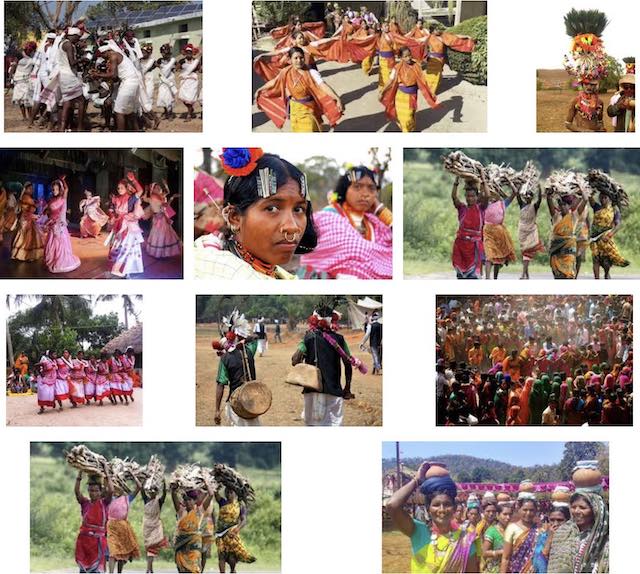“We, the members of South Asian Diaspora located in North America and Europe, desire peace, harmony and good neighborliness among the countries of South Asia, and social justice and economic wellbeing for the people there. We also have a responsibility to make a contribution in these directions. Over the years many of us have been engaged in individual or organized capacity to work for secularism, democracy, human rights and social justice. Time has come for us to come together and work in concert with each other”.
Thus came into being the International South Asia Forum, INSAF, at a conference held in Montreal, Canada on September 4 and 5, 1999.
Our Supporters
- Alliance for a Secular and Democratic South Asia, Boston
- Alternatives, Montreal
- Ambedkar Centre for Justice and Peace, Toronto
- Coalition for an Egalitarian and Pluralistic India, Los Angeles
- Department of Sociology and Anthropology, Simon Fraser University, Burnaby, BC
- Department of Sociology and Anthropology, Langara College, Vancouver
- East Indian Workers’ Association, Brampton, Ontario
- EKTA, New York
- Institute for the Humanities, Simon Fraser University, Burnaby, BC
- NAVRASA Dance Threatre, Boston
- Punjabi Literary and Cultural Association, Winnipeg
- Secular People’s Association, Edmonton
- South Asia Left Democratic Alliance (SALDA), Toronto
- South Asian Network for Secularism and Democracy (SANSAD), Burnaby, BC
- South Asia Partnership – Canada, Ottawa
- South Asia Research and Resource Centre (CERAS), Montreal
- Young India, Washington, DC
Source: INSAF – International South Asia Forum
URL: http://www.insafbulletin.net
Date Visited: 9 February 2023
We were here before King Wijaya [the first Aryan king] came. We are the oldest living inhabitants in the country – and I want everyone to know that we exist here. I want everyone to know that we have our language, and we want to take it forward.
Source: Gunabandilaaththo (Danigala Maha Bandaralage lineage of Vedda) quoted by Zinara Rathnayake in “Sri Lanka’s last indigenous people” (BBC Travel, 28 March 2022)
URL: https://www.bbc.com/travel/article/20220327-sri-lankas-last-indigenous-people
Date Visited: 29 March 2022
“You can’t keep quiet on everything. At some point, if you disagree – it’s better to say it then rather than piling it up.” – Former IAS Officer Kannan Gopinathan in a special lecture on “Democracy: Institutions and Individuals” (Asian College of Journalism – ACJ, 2 September 2020) | Democracy >>
Up-to-date reports by Indian experts and journalists
Search tips
Combine the name of any particular state, language or region with that of any tribal (Adivasi) community.
Add keywords of special interest (music, poetry, dance just as health, sacred grove and biodiversity); learn about the rights of Scheduled Tribes such as the “Forest Rights Act” (FRA); and the United Nations “Declaration on the Rights of Indigenous Peoples”, “Universal Declaration of Human Rights”, “women’s rights”, or “children’s right to education”.
Specify any other issue or news item you want to learn more about (biodiversity, bonded labour and human trafficking, climate change, ecology, economic development, ethnobotany, ethnomedicine, global warming, hunter-gatherers in a particular region or state, prevention of rural poverty, water access).
For official figures include “scheduled tribe ST” along with a union state or region: e.g. “Chhattisgarh ST community”, “Himalayan tribe”, “Scheduled tribe Tamil Nadu census”, “ST Kerala census”, “Particularly Vulnerable Tribal Group Jharkhand”, “PVTG Rajasthan”, “Adivasi ST Kerala”, “Adibasi ST West Bengal” etc.
In case the Google Custom Search window is not displayed here try the following: (1) toggle between “Reader” and regular viewing; (2) in your browser’s Security settings select “Enable JavaScript” | More tips >>
Note: hyperlinks and quotes are meant for fact-checking and information purposes only | Disclaimer >>
List of websites covered by this Google custom search engine
Academia.edu (platform for academics to share research papers) – www.academia.edu
Archive.org – https://archive.org
Centre for Science and Environment – https://www.cseindia.org
Current Conservation – https://www.currentconservation.org
Development and Cooperation (D+C) https://www.dandc.eu
Down To Earth (India) – www.downtoearth.org.in
India Environment Portal – www.indiaenvironmentportal.org.in
Harnessing Nature Magazine – https://harnessingnature.online
Mongabay-India – https://india.mongabay.com
M S Swaminathan Research Foundation – www.mssrf.org
Navdanya (protecting India’s biodiversity based food heritage) – https://navdanya.org
Third World Network (Penang, Malaysia) – https://twn.my
The Shola Trust (nature conservation in the Nilgiri region) – www.thesholatrust.org

Indian online periodicals and platforms | Images view >>
~ ~ ~
Personalize your CustomSearch by combining other search words >>
(e.g. name of a tribal community and region, a craft, or dance and puppetry)
Research the above issues with the help of Shodhganga: A reservoir of theses from universities all over India, made available under Open Access >>
Note: hyperlinks and quotes are meant for fact-checking and information purposes only | Disclaimer >>
See also
CBC Unreserved (Canada) radio space for indigenous community, culture, and conversation
eLearning: Center for World Indigenous Studies
Indigenous people are at the forefront of the struggle to save the planet
Internet Archive | Archive.org
People’s Archive of Rural India (PARI) | RuralIndiaOnline.org
Recovering tribal culture from the misrepresentation of mainstream media
Storytelling | Success stories